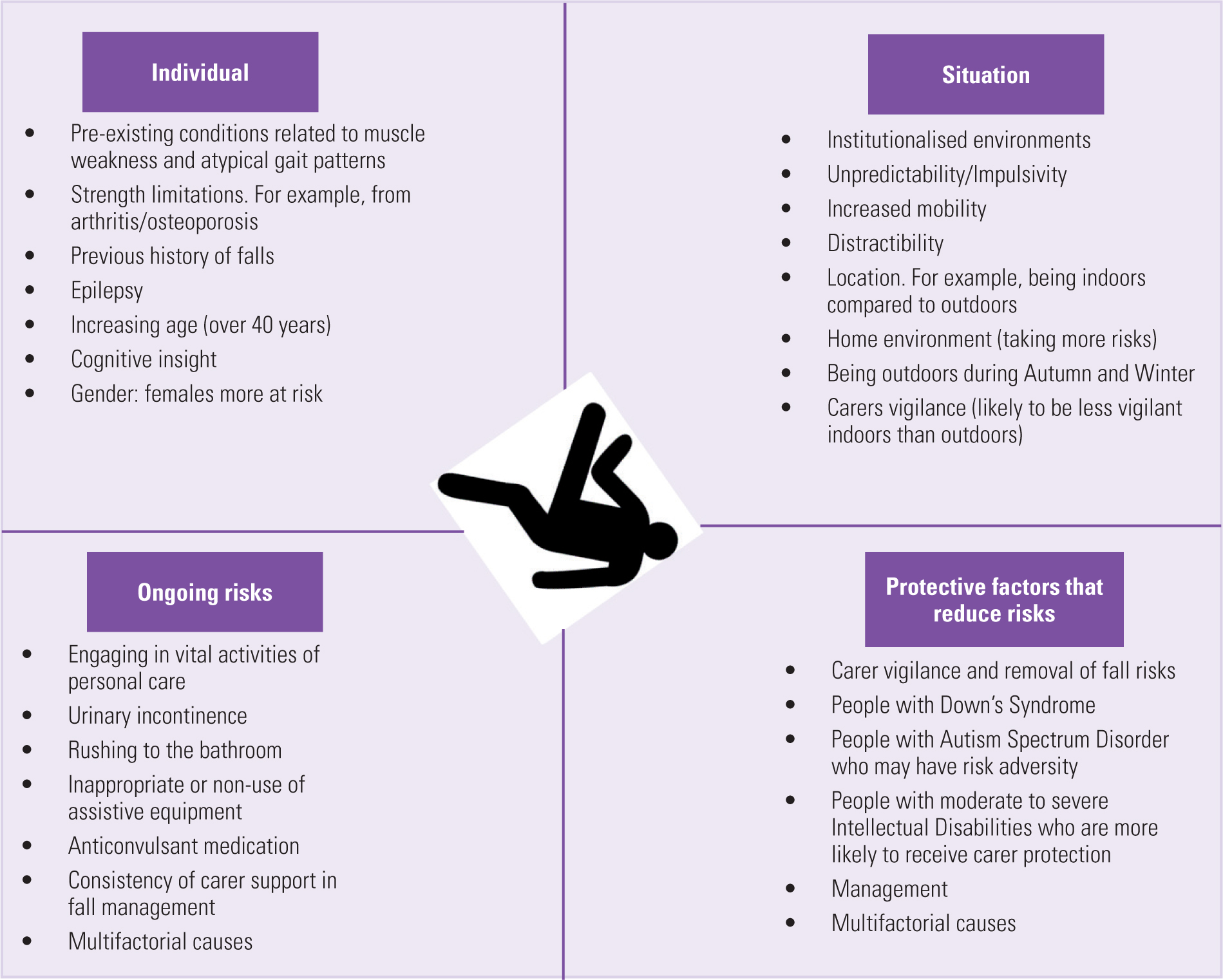What Does Dementia Fall Risk Do?
What Does Dementia Fall Risk Do?
Blog Article
Dementia Fall Risk - An Overview
Table of ContentsThe 25-Second Trick For Dementia Fall RiskAbout Dementia Fall RiskThe Ultimate Guide To Dementia Fall RiskThe 10-Minute Rule for Dementia Fall RiskFascination About Dementia Fall Risk
Based on signs and signs, such as proof of head injury or a brand-new focal neurologic deficiency, calculated tomography or MRI of the brain might be indicated. An evaluation for root causes of syncope ought to be performed just if there is solid suspicion, as in the instance of recurrent, unexplained drops
Doctor use a fall risk evaluation to determine your threat elements for falling and make handy referrals. Some people attempt to minimize their loss risk by restricting their task or striving to be a lot more mindful. These well-intentioned habits aren't sufficient - Dementia Fall Risk. A loss risk evaluation is essential due to the fact that understanding which elements raise your possibilities of falling assists you: Decrease your threat of dropping or hurting on your own.
Maximize your ability to move and be energetic. Keep a healthy and balanced, independent life. All adults 65 years and older need to have an initial loss risk testing. Your doctor may ask you whether you: Feel unstable when standing or walking. Have fallen in the previous year. Fret about falling. If you answer yes to any of these inquiries, your doctor will certainly suggest an extra, extra extensive analysis.
The Main Principles Of Dementia Fall Risk

, and objectives specifically tailored to individuals that are at danger for drops. A is defined as an event that results in a person coming to relax unintentionally on the ground or floor or other reduced official source level (THAT, 2021).
Dropping is the 2nd leading reason of fatality from unintentional injuries around the world. It is approximated that autumn fatality rates in the United state
Dementia Fall Risk for Dummies
If this rate continues, the CDC expects seven autumn deaths every hour by 2030.
Each year, over look at here 800,000 patients are hospitalized as a result of drops. Registered nurses play a significant role in preventing succumbs to their patients with education and learning, assessing loss risk, creating much safer settings, and giving interventions in protecting against injuries from drops. Several threat elements and problems add to falls, consisting of the following:. Aged 65 years and older; lower limb prosthesis; site web use assistive gadgets such as pedestrian, crane, and mobility device; living alone.
Autumns are due to several factors, and an alternative approach to the private and setting is crucial. Expect a person is thought about at high threat for drops after the testing.
Some Known Factual Statements About Dementia Fall Risk
A requires utilizing a verified tool that scientists have analyzed to be beneficial in calling the reasons for falls in an individual. As a person's wellness and circumstances adjustment, reassessment is needed. The level of fall danger can be identified making use of the evaluation of inherent and external aspects. Requirement evaluation tools can also be used (discussed listed below).
People are more most likely to drop again if they have actually maintained one or more falls in the past six months. The older populace is at boosted danger of fall-related readmissions based on a study recognizing the variables predictive of repeat drops connected results (Prabhakaran et al., 2020).
The capacity of people to secure themselves from drops is impacted by such factors as age and advancement. Older people with weak muscle mass are extra likely to fall than those that keep muscular tissue strength, flexibility, and endurance.
Dementia Fall Risk Fundamentals Explained
Less comparison sensitivity was quite related to both increased rates of falls and various other injuries, while lowered visual skill was just related to increased loss rate (Timber et al., 2011). Sensory assumption of environmental stimulations is extremely important to security. Vision and listening to problems limitation the individual's capability to regard hazards in the surroundings.
Older grownups that have bad balance or trouble walking are most likely to fall. These troubles may be related to absence of exercise or a neurological cause, joint inflammation, or various other medical problems and therapies. An essential danger factor highlighted in a study is that adults with rheumatoid joint inflammation go to high threat of drops, including inflamed and tender lower extremity joints, tiredness, and use of psychotropic drugs (Stanmore et al., 2013).
Report this page